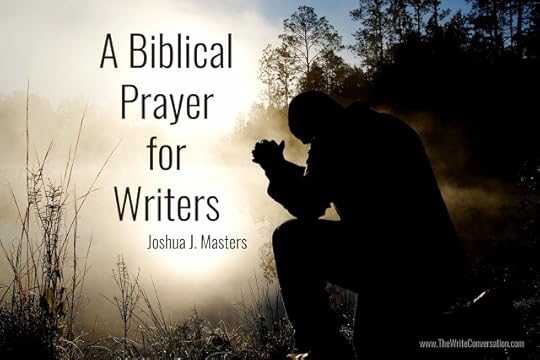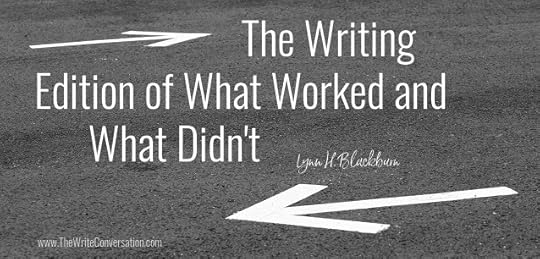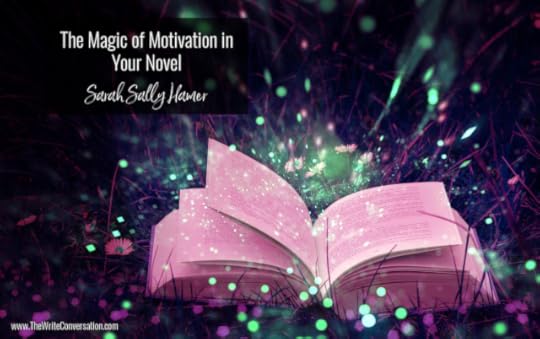Edie Melson's Blog, page 176
January 9, 2021
God in the Seasons

by Martin Wiles @LinesFromGod
As long as the earth remains, there will be planting and harvest, cold and heat, summer and winter, day and night. Genesis 8:22 NLT
Only two remained.
As I sat on my old antique porch glider, I watched as two hummingbirds fought over the one feeder that hung just outside my den window. Just a few days before, I had cleaned all my feeders but only returned one to the backyard. And just a few weeks prior, a dozen hummingbirds had created a war zone in the back and side yards as they fought for nectar from the three feeders placed strategically around the yard. Now, everything was changing.
The next day would be the first day of the autumnal equinox. The leaves on our four crepe myrtle trees were already turning and arching to the ground. The blooms had disappeared. Our first cool snap had arrived, dropping nighttime temps into the 40s. I knew what would happen soon: the hummingbirds would leave. As they had migrated here, the cool temps would send them back to southern Florida or Texas, and, if not there, to Mexico or South America. This was the only thing about fall I didn’t enjoy. Everything else, I loved. It’s my favorite time of the year.
I had only removed one of our feeders, but I knew in a few weeks I would need to remove all of them. Otherwise, a few hummers might hang around, get caught by the cold air, and perish before they made it back to their winter quarters. And I wanted them back next year.
I couldn’t help but think of the promise God made to Noah thousands of years ago. A promise that came after He had sent the great flood to destroy everything on earth. A promise of change, along with the promise never to send another flood like the one Noah and his family had witnessed. Within the promise came a dual promise of change and consistency—two seemingly contradictory things. The seasons would consistently come, but within the seasons, change would happen. Planting and harvesting. Cold and hot. Seasons.
Attributing the changing of the seasons merely to natural law causes us to miss a more important aspect: the sovereignty of God. Natural laws only work because God established them. And while He can operate outside of them—after all, He is God—He usually chooses to show His power through their consistency. The changing of the seasons being one way.
I love the changing of the seasons—especially the change from summer to fall. But I’ve gone through many changes I didn’t care for. Changes that disrupted…changes that took me to different places—such as the one the hummingbirds undertake. People have left me as the hummingbirds will. They moved. I moved. They died. Death is the hardest change to endure, but the break-up of a family follows closely behind.
Although the changes of life take us in many directions, those who follow Christ have one constant to anticipate: a new heaven and a new earth. All roads will one day come back together there. The changing will become changeless. I look forward to perfect atmospheric conditions, perfect relationships, perfect bodies, and perfect actions. But until then, I plan to enjoy…perhaps endure…the changes God sends my way. Will you?
TWEETABLEGod in the Seasons - encouragement from Martin Wiles, @LinesFromGod on @EdieMelson (Click to Tweet)
 Martin Wiles is the founder of Love Lines from God (www.lovelinesfromgod.com) and serves as Managing Editor for Christian Devotions, Senior Editor for Inspire a Fire, and Proof Editor for Courier Publishing. He has authored six books and has been published in numerous publications. His most recent book, A Whisper in the Woods: Quiet Escapes in a Busy World, released in December 2019. He is a freelance editor, English teacher, author, and pastor.
Martin Wiles is the founder of Love Lines from God (www.lovelinesfromgod.com) and serves as Managing Editor for Christian Devotions, Senior Editor for Inspire a Fire, and Proof Editor for Courier Publishing. He has authored six books and has been published in numerous publications. His most recent book, A Whisper in the Woods: Quiet Escapes in a Busy World, released in December 2019. He is a freelance editor, English teacher, author, and pastor.
January 8, 2021
Choosing to be a Flexible Writer

by Beth K. Vogt @BethVogt
As 2020 wound down, I discovered a quote by motivational coach Tony Robbins: “Stay committed to your decisions, but stay flexible in your approach.”
Rather than making a list of New Year’s resolutions, I prefer to choose One Word to focus on each year. But there are still specific personal, professional, and spiritual goals I pray about and plan for in the coming months that help me achieve my writing dreams.
However, after I’ve detailed my plans, I can often hold onto the what, the how, and the when with a clenched fist.
Do me a favor: clench your fist and count to ten.
There’s a lot of tension in a clenched fist, isn’t there?
The reality of tension in our lives directs us back to Robbins’s recommendation to be both committed and flexible. When we insist our goals only be achieved by following step A, then step B, then step C, we’re not magically guaranteeing success for ourselves – but we are guaranteeing stress.
This year as we decide what we want to accomplish, let’s choose to be flexible how we’re going to make things happen.
But how can we be flexible writers?
I’m so glad you asked! (I know, I know, I asked the question. But stay with me, okay?)
Here are three tips to foster mental flexibility:
1. Read. This is easy, right? We’re told to read to be better writers, and yet sometimes in the pursuit of our publication dreams, we shove aside pleasure reading. Did you know reading can also can interrupt negative (think stressed-out) thought patterns? The next time you’re in a funk because life isn’t going the way you planned, take a break, pick up a book, and read! 2. Journal. Yes, writing cultivates mental flexibility. But I’m not talking about writing to meet your publishing deadline or to untangle the muddled middle of your Work in Progress (WIP). Think more stream of conscious writing. Write what comes to mind: dialogue or a poem or a memory – and don’t let your internal editor criticize what goes on the page. Consider ending on a positive note by saying what you’re thankful for.3. Exercise. We can be all about keeping our bottoms-in-our-chairs when we’re chasing a certain word count or when our muses are singing. But we also know pushing away from the computers and moving is good for us physically. Exercise also helps us stay adaptable mentally and emotionally as we destress by walking or running on the treadmill or participating in a Pilates class or lifting weights. There you have it: three ways to increase your mental flexibility. Which one will you try?
TWEETABLE3 Tips to Help You Choose to be a Flexible Writer - @BethVogt on @EdieMelson (Click to Tweet)
 Beth K. Vogt believes God’s best often waits behind the doors marked “Never.” Having authored nine contemporary romance novels and novellas, The Best We’ve Been, the final book in Beth’s Thatcher Sisters Series with Tyndale House Publishers, releasers May 2020. Other books in the women’s fiction series include Things I Never Told You, which won the 2019 AWSA Award for Contemporary Novel of the Year, and Moments We Forget. Beth is a 2016 Christy Award winner, a 2016 ACFW Carol Award winner, and a 2015 RITA® finalist. An established magazine writer and former editor of the leadership magazine for MOPS International, Beth blogs for Learn How to Write a Novel and The Write Conversation and also enjoys speaking to writers group and mentoring other writers. Visit Beth at bethvogt.com.
Beth K. Vogt believes God’s best often waits behind the doors marked “Never.” Having authored nine contemporary romance novels and novellas, The Best We’ve Been, the final book in Beth’s Thatcher Sisters Series with Tyndale House Publishers, releasers May 2020. Other books in the women’s fiction series include Things I Never Told You, which won the 2019 AWSA Award for Contemporary Novel of the Year, and Moments We Forget. Beth is a 2016 Christy Award winner, a 2016 ACFW Carol Award winner, and a 2015 RITA® finalist. An established magazine writer and former editor of the leadership magazine for MOPS International, Beth blogs for Learn How to Write a Novel and The Write Conversation and also enjoys speaking to writers group and mentoring other writers. Visit Beth at bethvogt.com.
January 7, 2021
A Biblical Prayer for Writers

by Joshua J. Masters @JoshuaJMastersAfter the struggles of the last year, many of us are rededicating ourselves to more productive writing schedules, a greater respect for deadlines, and an organized plan for our business. But if our last turbulent trip around the sun taught us anything, it’s that we should focus on the things that are most important and be grateful for the things we take for granted.
For Christian authors, our focus and our gratitude should continually return to the One who called us to a life of writing, the One who put that desire in our hearts and outlined our purpose in His plan. Yet I sometimes find the tasks of writing can overshadow the worship that should drive and inform the words I write.
So, how do we remain focused on God and His call on our lives as we continue to be faithful to the work of that calling?
The biblical prayer for writers that follows is based on over a dozen passages of scripture, encouraging us to lean into the promises and character of God as we write. In this new year, let’s remain focused on Him—not only by making this prayer our own, but by reading and meditating on the passages themselves.
Dear Lord,
Your Word is living and active. It sees the very intentions of my heart,1
And I pray You would examine my heart2 as I write words to reflect the truth of Yours.
Just as you directed Isaiah, Jeremiah, and John to write the things You revealed to them,3
May my writing be true to what you reveal in my own life—not for my purpose, but for Yours alone.
May the words that first come to my heart be words of worship,
That I might proclaim the words of the psalmist:
“My heart is moved by a noble theme as I recite my verses to the King;
My tongue is the pen of a skillful writer.” 4
I have so many dreams for my writing, so many plans.
But I pray You would make my steps sure.
Help me seek You and Your path rather than my own.5
Teach me to work with integrity, writing for Your pleasure above all else. 6
And as I dedicate myself to learning the craft You’ve placed on my heart,
Help me commit all my work to You, Lord.7
When I need to focus, remind me that Your shield surrounds me. 8
When I am discouraged, remind me that You will lift me up. 9
When I am without words, remind me that wisdom comes from Your mouth. 10
Humble my heart in success,
Encourage my heart in disappointment,
And strengthen my heart in Your purpose. 11
Not to my name, but to Yours alone may glory come12 through these words I write.
I ask these things knowing I am Your workmanship,
That You created me to fulfill the deeds you’ve designed just for me.13
May my heart and my pen forever seek those things.
In the name of Christ, the Word that became flesh,
Amen.
1. Hebrews 4:12
2. Psalm 139:23
3. Isaiah 30:8; Jeremiah 30:2; Revelation 1:19
5. Psalm 45:1 (CSB)
6. Proverbs 3:5-6, 16:9
7. Colossians 3:23; 2 Timothy 2:15
4. Proverbs 16:3
8. Psalm 3:3
9. 1 Peter 5:6-9
10. Proverbs 2:6
11. Philippians 4:11-13
12. Psalm 115:1
13. Ephesians 2:10
TWEETABLE
A Biblical Prayer for Writers - @JoshuaJMasters on @EdieMelson (Click to Tweet)
 Joshua J. Masters is a pastor, author, and speaker with a heart for encouraging others. His book on prayer,
American Psalms
, was a Serious Writer’s Book of the Decade finalist. He’s been featured on CBN Television, HIS Radio, the Light Radio Network, and worked in the film industry as a member of SAG-AFTRA performer. He is a regular teacher and speaker for large groups. A self-proclaimed sci-fi and comic book geek, Josh loves film, pop culture and is known in some circles as The Bat Pastor. Joshua was raised in the White Mountains of New England and now serves as a pastor in South Carolina where he lives with his wife, Gina, and their miniature poodle, Franklin the Pup, who is the subject of his latest book. Josh would love to connect with you on his website, JoshuaJMasters.com.
Joshua J. Masters is a pastor, author, and speaker with a heart for encouraging others. His book on prayer,
American Psalms
, was a Serious Writer’s Book of the Decade finalist. He’s been featured on CBN Television, HIS Radio, the Light Radio Network, and worked in the film industry as a member of SAG-AFTRA performer. He is a regular teacher and speaker for large groups. A self-proclaimed sci-fi and comic book geek, Josh loves film, pop culture and is known in some circles as The Bat Pastor. Joshua was raised in the White Mountains of New England and now serves as a pastor in South Carolina where he lives with his wife, Gina, and their miniature poodle, Franklin the Pup, who is the subject of his latest book. Josh would love to connect with you on his website, JoshuaJMasters.com.
January 6, 2021
The Writing Edition of What Worked and What Didn't

by Lynn H. Blackburn @LynnHBlackburn
For the past few years, I’ve created a What Worked/What Didn’t Work list as a way to review the previous year. **
I love this process because it allows me to acknowledge places where I struggled and shine a light on the things I want to change in the upcoming year, but it also gives me room to celebrate what went right.
I make this list for my personal life which includes how things went for my family, in my home, with my health, relationships, etc. But I also make a separate list for my writing life, and that’s what I want to share with you today.
I expected the 2020 edition of my list to be heavy on the “What Didn’t Work” side and light on the “What Worked” side.
To my surprise, the opposite was true. Maybe this is because there’s a general sense that since everything went wrong in 2020, we could just put “Everything” in the what didn’t work category and be done with it.
But we do ourselves a disservice when we don’t take the time to spell things out, because as wild and woolly as 2020 was, it wasn’t all bad.
No. Really. It wasn’t.
Let’s get the bad stuff out of the way first, shall we?
What Didn’t Work - the Writing Edition
1. Not going to conferences in person. The one in-person event I planned to attend, I had to cancel because I was quarantined and then tested positive. No matter how many awards ceremonies I have watched online or classes I’ve taken, it’s just.not.the.same. I miss seeing my writing friends. Hugging them. Cheering for them. I think on-line options are wonderful, but I cannot wait to attend conferences in person again.
2. Pretending my deadlines don’t exist. This feels self-explanatory. There’s no way this would ever work, so I don’t have a good excuse other than that it was 2020 and everything was weird. But sticking my head in the sand and pretending my words would magically appear with zero effort on my part? It never happened. It would make me feel better if some of y’all would tell me you tried the same thing. :)
3. Creating while under extreme stress. All kidding aside, 2020 has been hard. I wrote. I met my deadlines (although, see #2, sometimes it was close). But I can’t say any of it was easy.
What Did Work - the Writing Edition
1. Creating a private reader group on FB. I created a separate private reading group (The Deep Divers, feel free to join us) where my readers can interact with each other and with me. When it comes to actual connection, it’s working better than my author page (no surprise there) or anything else I’ve tried to this point. With the changing face of social media, who knows if this will be true for 2021, but it worked in 2020.
2. Zoom/Facetime. While never as good as spending time with the people you love in person, Zoom has helped me stay connected to my writing friends in a big way. I’ve even taught three days of Scrivener classes over Zoom. It wasn’t ideal, but it got the job done. Even though I wave my introvert flag proudly, 2020 has brought on a level of isolation that isn’t healthy for any of us. It would have been so much worse without Zoom.
3. Scrivener. Scrivener doesn’t lie to me about my deadlines. Scrivener won’t let me pretend my deadlines don’t exist. Scrivener gets all up in my face with my word count every day. Scrivener also doesn’t care if my brain is too mushy to write in a linear fashion and I need to write a random kissing scene to make me feel better. (Yes, this happens, and I know I’m not alone in this). Scrivener can deal with my chaos. It has for a decade and I expect it to continue to perform admirably in 2021.
4. Writing a novella as a lead magnet. Y’all, this has been suggested to me for years. Years. And I always said I didn’t have time. But I made time this year, and so far, I’d say it has been worth it. If you’re trying to build a newsletter subscriber base, consider writing that short story, novella, flash fiction, or whatever it is that can showcase your writing and give readers some real incentive to sign up.
5. Using my bullet journal. All those memes where people say the worst purchase they made in 2020 was a planner? Not true if you use a bullet journal, aka, the most flexible planner ever. Not familiar with the bullet journal? Check it out here.
6. Writing Sprints. Writing sprints are very popular during NaNoWriMo when the need to get words on the page supersedes almost everything else. But 2020 taught me that sprints can be a game changer when you need words, but there are 1000 other things vying for your attention. Which, in 2020, was all the time.
Here’s what you do. Grab a few writer friends. Get them on a text loop. Or set up a Zoom meeting. Then set your timer for fifteen minutes and write as much as you can. See if you can beat your friends. Gloat when you do. No. Wait. Did I say that? I meant be gracious when you do. That’s what I meant. Gracious.
I have written a ton of words over the past couple of months with friends in England, Texas, and five miles away from me in South Carolina all together on a Zoom call where we don’t talk, we write. Squeeze in three or four sprints and you’ve probably met your wordcount for the day. Give it a try!
That’s my list. I’d love to hear what worked and what didn’t work for you in 2020. :)
Grace and peace,

TWEETABLEThe Writing Edition of What Worked and What Didn't - @LynnHBlackburn on @EdieMelson (Click to Tweet)
**This idea isn’t original to me. I have no idea who originated it, but I got it from Anne Bogel (aka Modern Mrs. Darcy) and Emily P. Freeman.
 Lynn H. Blackburn loves writing romantic suspense because her childhood fantasy was to become a spy, but her grown-up reality is that she's a huge chicken and would have been caught on her first mission. She prefers to live vicariously through her characters and loves putting them into all kinds of terrifying situations while she's sitting at home safe and sound in her pajamas!
Lynn H. Blackburn loves writing romantic suspense because her childhood fantasy was to become a spy, but her grown-up reality is that she's a huge chicken and would have been caught on her first mission. She prefers to live vicariously through her characters and loves putting them into all kinds of terrifying situations while she's sitting at home safe and sound in her pajamas! Lynn’s titles have won the Carol Award, the Selah Award, and the Faith, Hope, and Love Reader’s Choice Award. Her newest series kicks off in March 2021 with Unknown Threat, Book 1 in the Defend and Protect series.
She is a frequent conference speaker and has taught writers all over the country. Lynn lives in South Carolina with her true love and their three children. You can follow her real life happily ever after by signing up for her newsletter at LynnHBlackburn.com and @LynnHBlackburn on Bookbub, Facebook, Twitter, Pinterest, and Instagram.
January 5, 2021
The Magic of Motivation in Your Novel

by Sarah Sally Hamer @SarahSallyHamer
Why do characters do what they do? Just like real humans, characters have extremely good reasons. Knowing WHY a character does something is essential – they MUST have a reason, even if the reader doesn't get it at first. But that's only half of the equation. Writers must also understand and express the reaction that follows.
Motivation originates from backstory. People do what they do because of what has happened to them in the past, just like characters. Each time a character reacts, it's because of a past event, no matter what that event is.
First, there's a stimulus. In the movie, Up, the contractor reaches for the mailbox Carl and Ellie painted together. Carl reacts by hitting the man with his cane which causes a ruckus and, ultimately, Carl's decision to take the house to Paradise Falls. If we hadn't just seen the entire flashback of Carl and Ellie's love story, we wouldn't know why that mailbox was so important to Carl, important enough to smack someone. Carl's reaction is immediate and visceral. He doesn't think about consequences, like getting stuck in a nursing home for assaulting someone. He just does it. Because we know why, we understand and sympathize.
In While You Were Sleeping, Lucy has just rescued Peter from a train and, because she isn't allowed to walk into his hospital room, she mutters, "But I'm going to marry him" under her breath. The nurse who hears her say this immediately assumes she's his fiancé and announces it to everyone, including his family who have, of course, never met her. That's the stimulus. How does Lucy react? Instead of denying it and walking away, she allows herself to be coerced into a fake engagement which takes the whole movie to untangle. Why does she react the way she does? Because, as we've already seen by then, she allows people to take advantage of her all the time. Her boss has just compelled her to work on the holidays because "everyone else has a family." She also wants a family more than she wants anything else because she's so very alone. So it's easy for her to go along with the lie, until something (Jack) comes along to change her mind.
Both of these examples are microcosms of the rest of the movies, but both are also pivotal to the telling of the story because the audience understands WHY a character follows a certain pattern. It doesn't have to be told in backstory – which each of these two does – but it works. And the stimulus/reaction couplets, based on motivation, continue throughout. WHY does Carl use the balloons to move the house? Because he sold balloons at the park and understands how they work. WHY does Lucy finally tell the truth? Because she has finally realized that someone else's family doesn't count. She wants her own. So she stands her ground in front of a bunch of people she's learned to care about and confesses, knowing she may lose everything she thought she ever wanted.
There are lots of ways to explain a character's motivation. She can TELL it in dialogue or he can SHOW it in some sort of action or body language. Or both. Carl's backstory is told in the first eight minutes of the movie in a flashback. Lucy shows her story, as she digs herself into an ever-deepening hole, until it takes a wedding to produce the truth. Consistency is everything, because the reader will expect a character to stay "in character" throughout the story. Or, at least, until the character realizes the way he or she has been doing things doesn't work and is willing to make a change.
Regardless of how you do it, ultimately, backstory/motivation gives the reader a clear understanding of how the character ticks. It's not that hard to do, once the process is set up.
I usually figure out the stimulus first. SOMETHING happens.
Joe wants to ask Susie to the prom. He walks into the hamburger joint where he knows she'll be working and hears Sam ask her to go. (Stimulus)
Next is the Reaction. What does Joe do? Does he knock Sam off the bar stool? Does he turn around and walk away? Does he demand that Susie go with him instead? Any of these work. But which is best?
That depends on Joe. What is his motivation? What kind of person is he? Did he come up "the hard way" or did his dad tell him never to fight?
Only the writer knows! And getting it down onto paper helps the reader to understand.
Do you know your characters well enough to know WHY they do what they do?
TWEETABLEThe Magic of Motivation in Your Novel - @SarahSallyHamer on @EdieMelson (Click to Tweet)
 Sarah (Sally) Hamer is a lover of books, a teacher of writers, and a believer in a good story. Most of all, she is eternally fascinated by people and how they 'tick'. She’s passionate about helping people tell their own stories, whether through fiction or through memoir. Writing in many genres - mystery, science fiction, fantasy, romance, medieval history, non-fiction – she has won awards at both local and national levels, including two Golden Heart finals.
Sarah (Sally) Hamer is a lover of books, a teacher of writers, and a believer in a good story. Most of all, she is eternally fascinated by people and how they 'tick'. She’s passionate about helping people tell their own stories, whether through fiction or through memoir. Writing in many genres - mystery, science fiction, fantasy, romance, medieval history, non-fiction – she has won awards at both local and national levels, including two Golden Heart finals.A teacher of memoir, beginning and advanced creative fiction writing, and screenwriting at Louisiana State University in Shreveport for almost twenty years, she also teaches online for Margie Lawson at WWW.MARGIELAWSON.COM. Sally is a free-lance editor and book coach at Touch Not the Cat Books, with many of her students and clients becoming successful, award-winning authors.
You can find her at hamerse@bellsouth.net or WWW.SALLYHAMER.BLOGSPOT.COM
From Sally: I wish to express gratitude to the giants whose shoulders I stand on and who taught me so much about the writing craft. I would list every one, if it were only possible.
January 4, 2021
Know the (Writing) Rules to Break the Rules Well

by PeggySue Wells @PeggySueWells
One day, my daughter practiced music while I mixed together a favorite recipe in the kitchen for scones.
“Mama, was Bach a nice man?” My six-year-old called to me from the piano in the living room.
“From what I’ve read about him, I believe he was a nice man.” I considered the list of ingredients in my recipe and substituted pecans and cranberries for the chocolate chips. “He wrote the minuets you’re playing to teach his wife and children how to play the piano.”
“Good.” She played a few notes. “Then he won’t mind that I am fixing his music.”
Fixing Bach’s music? This was the spunk the piano teacher appreciated in my young daughter. Her long cinnamon-colored hair shining, Leilani sat beside the equally petite – though full grown – piano teacher, the two of them small on the music bench. Leilani played her lovely rendition of Bach’s Minuet. Her teacher applauded and exclaimed how thoroughly she enjoyed the creative arrangement.
“Now, play what is written on the music score,” the teacher said. “Just one time so I know you can read the notes and play how he wrote it.”
Writing, like music, has rules. Once we know the how-tos of the craft, we add our own voice. We have to know the rules to bend and break the accepted format with such style that readers and industry professionals agree to come along. The rules of writing are the format and structure that allow the reader to trust the author on the journey.
Bach created music that fit into a structure. Listeners recognize the slow, stately ballroom dance for two as a minuet, anticipating the piece will continue throughout in triple time. The composer arranged the order of his notes onto the familiar treble and base clef notation system. Following the common rules of music, he shared his melody with the world.
Rules help readers feel confident that their investment of time and money to read our work includes a guaranteed level of return. Industry standards guide the writer much like lines on the musical stave contain creativity. And all writing rules can be broken. The key is to know the rules so you can break them in a manner believable to the reader. E.B. White gave us a talking pig in Charlotte’s Web, and we suspend reality and go along. In Huckleberry Finn, Mark Twain exchanged proper literary dialog for a collection of true-to-life regional dialects challenging to pronounce. And The Book Thief shifts from the usual living, breathing narrator to let Death tell the story.
Knowing and applying the rules of the craft produce satisfactory results with recipes, music, and writing. Adjusting the recipe, adding musical improv, and telling the story your way comprise the next step in adding your voice to your art. The more you experiment, the more the process becomes intuitive.
Keep up-to-date on the current rules and trends in writing by attending a conference or two each year like the Blue Ridge Mountains Christian Writers Conferencereading books about writing including Soul Care for Writers by Edie Melsonconnecting with authors through resources like The Write Conversationjoin or create a small writers group that meets online or in person regularly to encourage one another’s growth and success as writersBe familiar with current trends in the writing industry. Then, go ahead and bend a few rules.
TWEETABLEKnow the (Writing) Rules to Break the Rules Well - @PeggySueWells on @EdieMelson (Click to Tweet)
 Tropical island votary and history buff, PeggySue Wells parasails, skydives, snorkels, scuba dives, and has taken (but not passed) pilot training. Writing from the 100-Acre wood in Indiana, Wells is the bestselling author of twenty-eight books including The Slave Across the Street, Slavery in the Land of the Free, Bonding With Your Child Through Boundaries, Homeless for the Holidays, and Chasing Sunrise. Optimistic dream-driver, PeggySue is named for the Buddy Holly song with the great drumbeat. At school author visits, she teaches students the secrets to writing, and speaks at events and conferences. Connect with her at www.PeggySueWells.com, on Facebook at PeggySue Wells, and Twitter @PeggySueWells.
Tropical island votary and history buff, PeggySue Wells parasails, skydives, snorkels, scuba dives, and has taken (but not passed) pilot training. Writing from the 100-Acre wood in Indiana, Wells is the bestselling author of twenty-eight books including The Slave Across the Street, Slavery in the Land of the Free, Bonding With Your Child Through Boundaries, Homeless for the Holidays, and Chasing Sunrise. Optimistic dream-driver, PeggySue is named for the Buddy Holly song with the great drumbeat. At school author visits, she teaches students the secrets to writing, and speaks at events and conferences. Connect with her at www.PeggySueWells.com, on Facebook at PeggySue Wells, and Twitter @PeggySueWells.
January 3, 2021
Get Busy on Your Waiting (Writing) List

Get Busy on Your Waiting (Writing) Listby Kristen Hogrefe Parnell @KHogrefeParnell
For something we writers have to do so often, we aren’t very good at it. Waiting, that is.
The other evening, I was talking to my husband James. Okay, I’ll be honest. I was complaining about one of my projects that is still publishing-house homeless.
James paused for a second and then said, “Babe, I wish I didn’t have to wait so long to meet you, but I’m glad I did.”
In that moment, I was both convicted and charmed. You see, my husband and I were in our thirties when we met and got married. We never imagined we’d have to wait so long to find each other, but we are so thankful we did.
Right then, I found the perspective I needed to go back to waiting in my writing career some more. Wherever we are in our writing journeys, we’ll always find something that requires waiting. Maybe you’re waiting to hear back from an agent you hope might represent you or from an editor who expressed interest in your project.
The key is that waiting is not a passive activity. It’s very much active.
Think of the waiter at your favorite restaurant. He isn’t twiddling his thumbs or slowly sipping hot cocoa in a corner. No, sir! He hurries from table to table, smiling, getting to know guests, making sure they are comfortable, and keeping tabs on their orders.
Likewise, we writers can be productive in the waiting.
Here are just a few suggestions:
1. When is the last time you reviewed your website? Does it need a facelift? Do you have missing images or broken links? Make sure your site is inviting and relevant to your audience and message.
2. Where can you best serve your audience in the meantime? Do you blog regularly or have a podcast? Can you reach out to be a guest on a podcast or write articles for a website that shares your same passion?
3. Do you have a consistent brand across your social media accounts? Are you consistently posting?
4. What is a project you would love to do if you had time? Guess what. You’ll never have as much time as you do prior to signing a contract with an agent or publisher.
The bottom line is that we can find opportunities in the waiting. What suggestion would you add to the “waiting” list? It’s time to get busy.
TWEETABLEGet Busy on Your Waiting (Writing) List - @KHogrefeParnell on @EdieMelson (Click to Tweet)
 Kristen Hogrefe Parnell is an award-winning author and life-long learner. An educator and mentor at heart, she teaches English online and is an inspirational speaker for schools, churches, and podcasts. Her young adult dystopian novels, The Revisionary and The Reactionary, both won the Selah for speculative fiction, and she is working on several new projects, including a romantic suspense novel. Kristen and her husband live in Florida and enjoy sharing their lake home with family and friends. She blogs at KristenHogrefeParnell.com where she challenges readers to find faith in life’s everyday adventures.
Kristen Hogrefe Parnell is an award-winning author and life-long learner. An educator and mentor at heart, she teaches English online and is an inspirational speaker for schools, churches, and podcasts. Her young adult dystopian novels, The Revisionary and The Reactionary, both won the Selah for speculative fiction, and she is working on several new projects, including a romantic suspense novel. Kristen and her husband live in Florida and enjoy sharing their lake home with family and friends. She blogs at KristenHogrefeParnell.com where she challenges readers to find faith in life’s everyday adventures.
January 2, 2021
Do What is Possible

by Audrey Frank @AudreyCFrank
So Joseph also went up from the town of Nazareth to Galilee to Judea, to Bethlehem the town of David, because he belonged to the house and line of David. He went there to register with Mary, who was pledged to be married to him and was expecting a child. While they were there, the time came for the baby to be born, and she gave birth to her. Firstborn, a son. She wrapped him in cloths and placed him in a manger, because there was no room for them in the inn. And there were shepherds living out in the fields nearby, keeping with her their flocks at night (Luke 2:4-8).
It is most often when we are doing what is possible that the impossible happens.
The marvelous, transformative new beginning we long for bursts into the commonplace, turning a stable into a sanctuary, a field into a tabernacle, and darkness into light.
Joseph was doing what was possible in the midst of an impossible situation. He was doing the next thing that was clear in the middle of a family crisis. In the honor-shame culture of the time, the choice Joseph made to obey the Lord and take pregnant Mary as his wife placed the burden of honor upon him. Her shame became his, his family’s, and his community’s. Everyone was watching him to see how he would bear this tremendous weight of responsibility. The journey to Bethlehem was likely a welcome escape from the pressure of disgrace he faced in Nazareth.
Mary was also doing what was possible. She was growing a baby. When the time came for her son to be born, we hear no record of complaint about the cold, the prickly, itchy hay, the hard ground, the lack of a specially-woven basket and joyfully embroidered clothing to welcome the little one into the world. I think Mary knew the secret to new beginnings. Do what’s possible; God will do what’s impossible. She learned it the very day the angel Gabriel appeared and proclaimed that her life was about to change forever:
The angel answered, “…For nothing is impossible with God.” “I am the Lord’s servant,” Mary answered. “May it be to me as you have said” (Luke 1:35, 37-38).
Mary accepted her role from the beginning. She would do what was possible and trust the Lord with what she could not possibly do herself.
Even the shepherds were simply doing what they always did. They were performing the mundane duties of sheep-herders, watching over their flocks in the surrounding hills of Bethlehem. The impossible burst into their common life, flooding the darkness with light and the silence with singing. Life would never again be the same for them.
The Gregorian calendar, the calendar most widely used in the world today, places the New Year one week after Christmas Day. But we who follow the Messiah born on Christmas do not have to wait a week for our new beginning. Our new beginning starts the moment we, like Mary, Joseph, and the shepherds, place our trust in the God of the Impossible.
As a writer, I wonder, what is possible for me right now as I stare down another new year? What duty is clear to me?
I will take intentional time this week to seek the Lord’s answer about this. Then I will set to doing it with all my heart.
You and I, writer, serve the Lord by stewarding words. They have the power of life and death. Words can build, and they can destroy. They can bring hope, and they can crush. What might the God of the Impossible do through us this year if we fully yield this exquisite power to Him? What stands in our way?
Let us each do what is possible and trust the Lord to work in the world around us and through us. He who is the New Beginning has already come. He will illuminate the darkness and transform silence into singing. This is the God we trust; this is the Lord for whom nothing is impossible.
Lord, I am Your servant. May it be to me as you have said, for nothing is impossible with You. Amen.
TWEETABLEDo What is Possible - @AudreyCFrank on @EdieMelson (Click to Tweet)
 Audrey Frank is an author, speaker, and storyteller. The stories she shares are brave and true. They give voice to those whose words are silenced by shame, the hard things in life that don’t make sense, and the losses that leave us wondering if we will survive. Audrey and her family have spent over twenty years living and working among different cultures and world views, and she has found that God’s story of redemption spans every geography and culture. He is the God of Instead, giving honor instead of shame, gladness instead of mourning, hope instead of despair. Although she has three different degrees in communication and intercultural studies, Audrey’s greatest credential is that she is known and loved by the One who made her.
Audrey Frank is an author, speaker, and storyteller. The stories she shares are brave and true. They give voice to those whose words are silenced by shame, the hard things in life that don’t make sense, and the losses that leave us wondering if we will survive. Audrey and her family have spent over twenty years living and working among different cultures and world views, and she has found that God’s story of redemption spans every geography and culture. He is the God of Instead, giving honor instead of shame, gladness instead of mourning, hope instead of despair. Although she has three different degrees in communication and intercultural studies, Audrey’s greatest credential is that she is known and loved by the One who made her.Audrey is the author of Covered Glory: The Face of Honor and Shame in the Muslim World (Harvest House Publishers), an outpouring of Audrey’s heart to introduce others to the God of Instead. Shame is not unique to the developing world, the plight of the women behind veils, young girls trafficked across borders; shame is lurking in hearts everywhere. Through powerful stories from women around the world, Covered Glory illuminates the power of the Gospel to remove shame, giving honor instead. Available at favorite booksellers: BARNES & NOBLE , BOOKS A MILLION, AMAZON.
You can also find Audrey at WWW.AUDREYFRANK.COM, as well as on TWITTER and FACEBOOK
January 1, 2021
Are You Including God In Your Publishing Plans?

by Tim Suddeth @TimSuddeth
“Impossible is just a big word thrown around by small men who find it easier to live in the world they have been given than to explore the power they have to change it. Impossible is not a fact. It’s an opinion. Impossible is not a declaration. It’s a dare. Impossible is potential. Impossible is temporary. Impossible is nothing.” Muhammad Ali
But [Jesus] said, “The things that are impossible with people are possible with God.” Luke 18:27
I first saw this quote from Muhammad Ali on Shayla Raquel’s blog. What a great mindset for us as writers to take into the new year. We are so quick to label one of our thoughts or dreams as impossible. And that becomes an excuse for us to not even attempt it. An idea is often the start to a journey, and it is on that journey that God prepares us and works His plan in us. By shooting for a big goal, even if you don’t reach it, you may go farther than you could have ever expected.
But are you making the right plans and goals for the new year?
How would your plans change if you quit thinking something is impossible?
I think a lot of big achievements never happen because a person was afraid to take the first step. When you’re thinking of climbing a mountain, it feels hopeless when you’re standing at the foot and looking way up to it’s peak. It is much easier to just walk through the gate.
You often hear someone say they have never done something before, or never done it this way before. I think everyone has, at one time or another, cowered before the fear of the unknown. But it is a fear without any teeth.
Just because it is new, doesn’t mean it’s bad or won’t work. It just means you’ll probably have to learn something new. I hate that. I’m old. Every time I turn around, there’s something else I need to learn. That probably needs another unique password I have to remember. (Sorry. One of my pet peeves.) Yet, it’s amazing at the things I’ve been able to do once I decided to learn how.
How would your plans change if you thought God was on your side?
It’s easy to think that God is too busy and I’m not important enough for God to care about me. I mean, there are a lot of people in this world. Most of them better, smarter, prettier, more whatever than me. Right?
That thought is understandable, but it is also unbiblical and just plain wrong. Jeremiah 29: 11, “’For I know the plans I have for you,’ declares the Lord. ‘Plans for welfare and not for calamity to give you a future and a hope.’” That’s not me wishing it, but God stating His fact.
God created each of us with a plan in His mind. One of my daily prayers is for me to achieve His plan in my life, and nothing less. Now, I don’t know what it is. If I did, it would probably scare the bejesus out of me. But I know that my only part to achieve it is to be obedient, he has made me to succeed and he has set it up so that it will happen.
If we allow God to start us on a journey, there is no telling where He will take us.
How can I know that God cares about me?
This question sets the foundation for many of our relations toward God. Especially after a year like we have just had, filled with COVID, calls for social justice, a divisive election, wildfires out west, and so much other crazy stressful happenings. So many of us have had to stay in, making us feel isolated, forgotten by our friends and everyone else. It’s easy to start thinking that I’m just little ole me. God has many more important people to be concerned about. I can’t measure up.
However, that isn’t how God has shown us He works. He doesn’t just care about or consider only the cool people, the important people, the in crowd.
When Jesus was at the temple watching people give their offerings, He didn’t mention the top giver, the latest celebrity, or the best dressed. And they were there, seeking everyone’s attention.
Instead, he pointed out the poor, ill dressed woman who had only been able to scrounge up two mites, only a couple of cents. Most of us would have patted her on her back and told her to keep them. Jesus saw her heart. Her faithfulness. And held her up to the leaders around Him as an example.
God is the ideal parent, he doesn’t see us as the world sees us, He sees us as He created us to be. Without the biases and stigmas that the world puts on us. He sees the true you. Even the you that you can’t accept when you look in the mirror. He sees, loves, and accepts you.
How can I change my plans to include God?
God is a holy God, and He calls us to be holy. He calls us His children, setting us apart from everyone else. He doesn’t call us by race, political party, nationality, or even fashion sense. Getting an evangelist’s pompadour is not how you get into His family. It’s only by believing in Jesus Christ as your savior. And that makes you different from everyone else in the world. Your thoughts, plans, future are all different.
And because we are different, our goals can’t be same as the world’s. Our decisions won’t be determined by the desire to get into a certain club, to be associated with the right people, to gauge an opportunity only by what it will get us.
Will adding God into your yearly goals make a difference?
Will you let God lead you to a place where you may feel uncomfortable so He can use you in a surprising new way?
Will you let 2021 be a miraculous year? Or are you going to stay safe on your porch and wish you knew a God who would love you like this?
TWEETABLEAre You Including God in Your Publishing Plans? - @TimSuddeth on @EdieMelson (Click to Tweet)
 Tim Suddeth is a stay-at-home dad and butler for his wonderful, adult son with autism. He has written numerous blogs posts, short stories, and three novels waiting for publication. He is a frequent attendee at writers’ conferences, including the Blue Ridge Mountain Christian Writers Conference and a member of Word Weavers and ACFW. He lives near Greenville, SC where he shares a house with a bossy Shorky and three too-curious Persians. You can find him on Facebook, Twitter, or at timingreenville.com.
Tim Suddeth is a stay-at-home dad and butler for his wonderful, adult son with autism. He has written numerous blogs posts, short stories, and three novels waiting for publication. He is a frequent attendee at writers’ conferences, including the Blue Ridge Mountain Christian Writers Conference and a member of Word Weavers and ACFW. He lives near Greenville, SC where he shares a house with a bossy Shorky and three too-curious Persians. You can find him on Facebook, Twitter, or at timingreenville.com.
December 31, 2020
Leave Space for Grace In Your Writing Goals

by A.C. Williams @Free2BFearless
I raised and trained 4-H market lambs for two years when I was in junior high. The profit I made helped me buy my first laptop, yes, but it was hard, exhausting, dirty work. (If you’ve never scrubbed the lanolin out of all a sheep’s nooks and crannies before a show, consider yourself fortunate to not have experienced that particular smell.)
The second year, I ended up with a lamb who pushed every button I had. She was stubborn and scared of everything. I named her Meg, after a book character who (to this day) frustrates me with her hard-headedness. I couldn’t even train her using the traditional belly-rubbing method we’d been taught. No, Meg the sheep required my knee in her chest to get her to set up properly. It was a constant fight, a constant struggle to get this sheep to behave and perform. But we did it. We made it to the county fair.
Here’s the problem: there’s a weight limit. A market lamb could only qualify for a premium at auction if it were 160 pounds or under. Without the premium, there’s no profit. Without the premium, the lamb is just a lesson in how to get the smell of sheep-gunk off of your hands.
Meg the sheep was 165 pounds.
After all the back-breaking work, the hours of training and walking, she didn’t qualify for a premium that would have made the project worth its time.
I was gutted. Disappointed. Discouraged. All that work, all that effort, for nothing? And then, the manager at the scales let her through.
She was in!
How had that happened?
Well, I learned two things from this experience at the county fair:
1) The judges very wisely included a 5-pound grace for extra chunky sheep, and 2) the man running the scales was my neighbor.
No, he didn’t bend the rules to let me in. With the grace area, I was still within the weight range that could be admitted, but I didn’t know that. He did. And gave me a solution I could use, but he also knew me personally. He knew my parents. He knew our family. He’d seen how hard I’d worked to be able to get to the fair, and he was glad to be able to help.
What on earth does that silly story have to do with writing?
Well, friends, have you ever set out with a goal in mind only to have life throw you an inescapable curve ball? Have you planned and strategized on deadlines and release dates only for events and circumstances to squash your hopes of productivity? Did you experience 2020 like I did?
You may be writing a novel or a devotional or a screenplay, and you have done everything right. You’ve talked to the right people. You’ve developed the right relationships. You’ve honed your craft. And you may still face trials and traumas that have nothing to do with the choices you’ve made and everything to do with the fact that we live in an imperfect world.
As you set your goals for 2021, remember to leave space for grace—not just for other people but also for yourself. Give yourself some wiggle room. You can do everything right, and circumstances will still rise up to stop you, delay you, and distract you. And believe me, if you aren’t in the right emotional head space, writing doesn’t always work.
Grace is for you too, my storytelling brothers and sisters.
When troubles and challenges knock you down, let yourself have the grace to rest, recover, and be restored. Otherwise you’ll flail and stumble and fall, and you won’t accomplish anything. You’ll just wear yourself out.
The Lord extends extraordinary grace to us. We should accept it. Allow ourselves to rest. Stop pushing so hard. Obviously, every situation is unique, but it’s important to know your priorities. And your mental and emotional health should qualify as a priority.
So, yes, set realistic goals. Do your best to achieve them. But keep in mind that the world we’re working in doesn’t work right, and difficulties will always appear in our paths. So be proactive. Decide now to value your health, your family, and your faith, because choosing to prioritize those things when the world feels like it’s falling apart around you is much more difficult.
Yes, deadlines are important, but you are more important. And let’s not forget that if storytelling and writing is part of your ministry, then you know the One who’s running the scales. There may be a grace period you don’t know about. He knows you, and He knows how hard you’ve worked. So maybe, if you ask Him, He’ll help you find a solution you haven’t thought of yet.
Happy New Year, everyone, and may 2021 be blessed.
TWEETABLELeave Space for Grace in Your Writing Goals - A.C. Williams, @Free2BFearless on @EdieMelson http://ow.ly/K7pS50CXSIR #writing #writerslife (NOTE: Click to Tweet is down, so please just copy and paste this entire tweetable into your social media.)
 A.C. Williams is a coffee-drinking, sushi-eating, story-telling nerd who loves cats, country living, and all things Japanese. She’d rather be barefoot, and if isn’t, her socks will never match. She likes her road trips with rock music, her superheroes with snark, and her blankets extra fuzzy, but her first love is stories and the authors who are passionate about telling them. Learn more about her book coaching services and follow her adventures on social media @free2bfearless.
A.C. Williams is a coffee-drinking, sushi-eating, story-telling nerd who loves cats, country living, and all things Japanese. She’d rather be barefoot, and if isn’t, her socks will never match. She likes her road trips with rock music, her superheroes with snark, and her blankets extra fuzzy, but her first love is stories and the authors who are passionate about telling them. Learn more about her book coaching services and follow her adventures on social media @free2bfearless.



